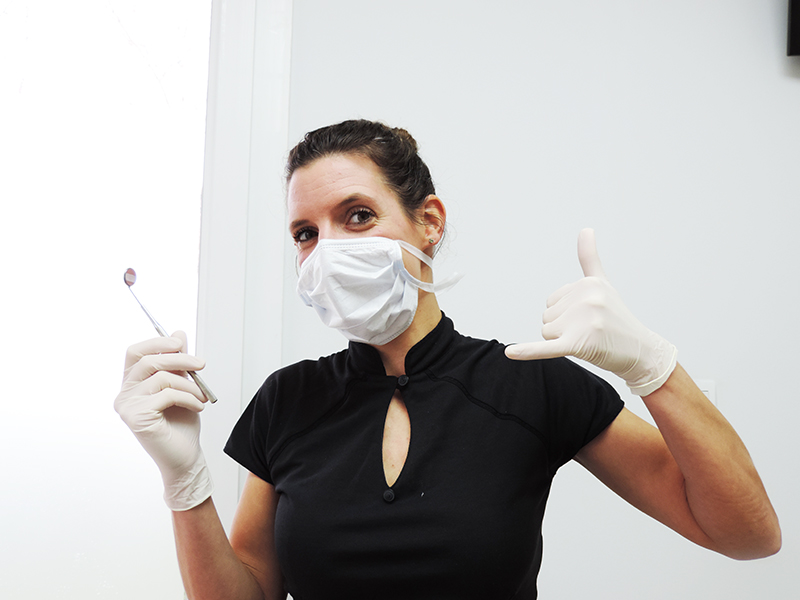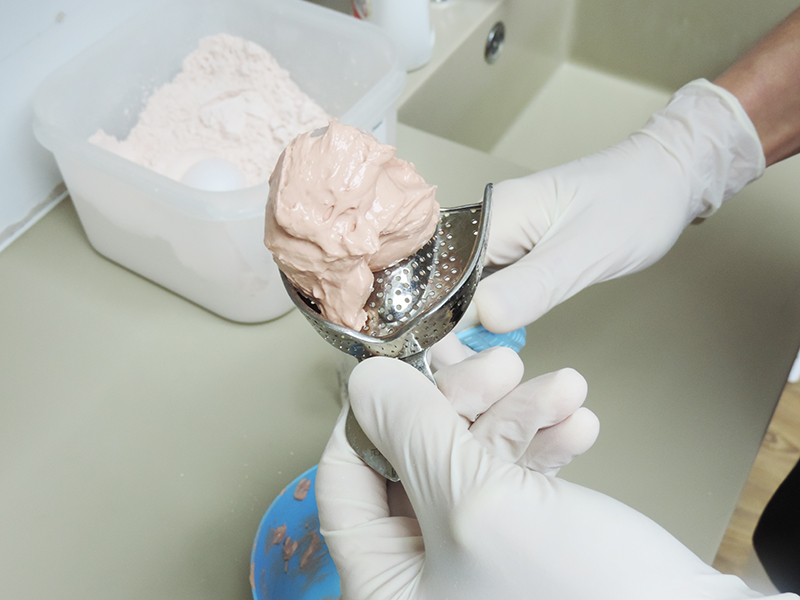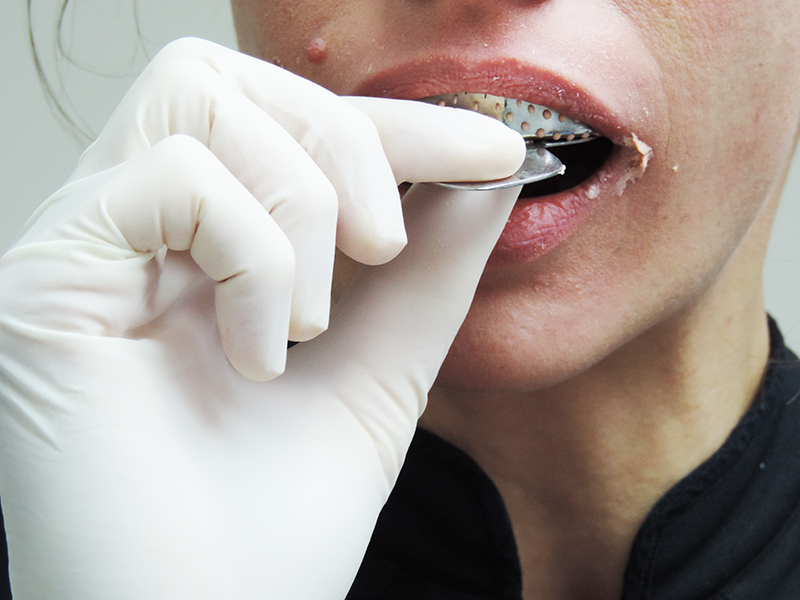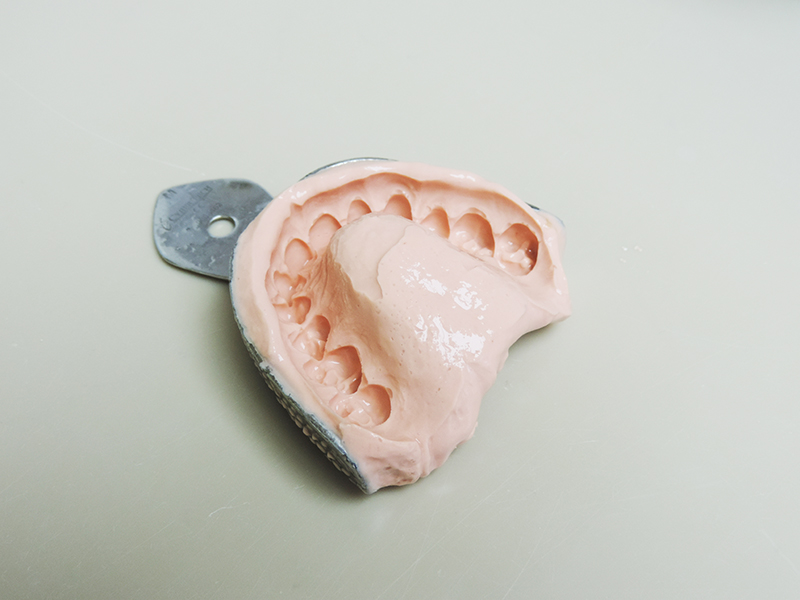How to choose a mouthguard for Brazilian jiu-jitsu?
You might think at first that there is no need to use a mouthguard for Brazilian jiu-jitsu because it is not a boxing sport. However falling over, failed guard passing or other messed up techniques can cause accidental impacts and damage your teeth (well you don’t always control your body and even less the others one’s…). Estelle, one of my BJJ friend is also a dentist. That’s why I asked her to prepare a rundown about mouthguards for Brazilian jiu-jitsu.
What is a mouthguard for?
It protects against teeth traumatisms and more specifically those from the higher arcade (in other words the upper teeth :)) : displacement or teeth expulsion, mandible fracture but also cerebral ravage or concussion (well you have to be very brutal…). Mouthguard isolate teeth from cheeks, tongue and all other mucous membrane and avoid wounds or bites. It also prevents teeth to clatter.
The different type of mouthguards ?
What is important to know when you choose a mouthguard ?
There are different kinds of mouthguards depending on your age, if you wear or not a set of false teeth (if you do, take them out when you mould or wear the mouthguard), and the sport you practise (horse riding and boxing are not the same thing !).
Stock mouthguard
You can find these manufactured products in all sports shops or in hypermarkets with a sport department. It’s the cheapest and also the less efficient kind of mouthguard. It lacks to hold in place and you constantly have to clench your teeth to hold it. Otherwise you might lose it or be hurt by friction inside the mouth. To sum up, it’s not the best choice but it’s better than nothing.
Mouth-formed mouthguard
It is also a manufactured product and you can buy it in the same shops. How does it works? You mould and adapt the mouthguard to your dentition. For that you put it in boiled water, then a few seconds in fresh water to cool it down. Then place it into your mouth and mould it by pressing your tongue against, by pushing with your fingers and to finish by closing your mouth. It is important to read instruction before you mould it because if you do not respect the moulding process, the protection will be less important and it will annoy you while breathing.
That type of mouthguard is a good alternative to a custom-fitted one. It is advised for children in full growth or wearing orthodontic appliances. Please note that it’s better if a dentist does the adaptation in those cases.
Custom-fitted mouthguards
This one is particularly made for adults. The dentist makes an imprint of your upper jawbone. It is the only one which gives you an optimal protection and comfort.
The mouthguard can be adapted to the sport you practice. There are different types: with one or several layers of resin. In the last case there is a different density for each layer to offer a better impact absorption.
The thickness is also an important factor. It is two, four or eight millimeters thick. A four millimeters thickness is the best one to protect from accidental impacts like in BJJ. It also offers the best comfort and protection balance.
A simple or double mouthguard for Brazilian jiu-jitsu?
A double mouthguard is recommended for striking sports. Impacts are accidental in Brazilian jiu-jitsu so a simple one is enough particularly as a double one is far less comfortable.
How to know you mouthguard size?
Mouthguards you can buy in shops exist in two sizes: junior or adult. We might say that’s easy?! You’re right but that doesn’t mean it will fit your mouth. The mouthguard can be too long and annoy you at the back of the mouth.
To know its size you can ask your dentist or measure the external distance between the last upper teeth with a compass or with a similar tool (put a piece of foam at the point so you won’t hurt yourself!). You will be able to check if the mouthguard size will fit you.
If you have one that’s too long, you will also know where to cut it. The protection will still be efficient because the teeth that are exposed most are those in front of the mouth. You just have to check that your teeth bite on the mouthguard when you close the mouth.
How to maintain your sport mouthguard
Wash it after each use. So like for the gi, take the habit to take it out of your sports bag after each training! It’s recommended to clean it with soap and water but an unpleasant taste might remain.
Avoid toothpaste because they are abrasive: it will damage the resin and the mouthguard will get dirty more easily.
Mouthwash or effervescent pastilles might be used occasionally for disinfection. Pay attention to leave the mouthguard only a few minutes in it to limit the resin abrasion.
Then you just have to let it dry and to keep it in a perforated box for the aeration.
How frequent should one change his mouthguard?
For kids who are still growing or those wearing an orthodontic appliance verify the mouthguard adaptation each 3 to 6 months. You concretely have to check if it still holds in place.
It has a longer lifetime for adults. You can keep it several years if you don’t have to undergo important works on your teeth. For negligible interventions like fillings changes or other “dental restoration”, you just have to verify that the mouthguard still remains well. If it does, you can keep on using it.
What if you hurt your teeth at training?
The following paragraph concerns France (sorry guys but maybe the process is similar in your country). If you feel an anomaly after an impact, go to the dentist to establish an initial medical certificate. In this document the dentist writes down the circumstances of the accident. After that he will do an external, an interior and a X-ray clinical examination to establish an immediate and/or long term treatment if needed. He will also venture possible reservations to the evolution of your teeth trauma (important for potential insurance claims later on).
If one of your teeth has been expelled you need a reimplant in the following hour to get as few after-effects as possible. The good reflex is definitely not to touch the roots of the tooth so you won’t damage the cells. Put it physiological saline or even in milk but not in water.
Most of us train at night and won’t be able to go to the dentist. In that situation try your best to maintain the tooth and go as soon as possible to the dentist the next day.
I hope you appreciate all these advices. Thanks a lot to Estelle for all these informations.
Sources : Estelle and UFSBD (Union Française pour la Santé Buco-Dentaire, advices card “Le Protège-dents ou protection intra-buccale).






Social